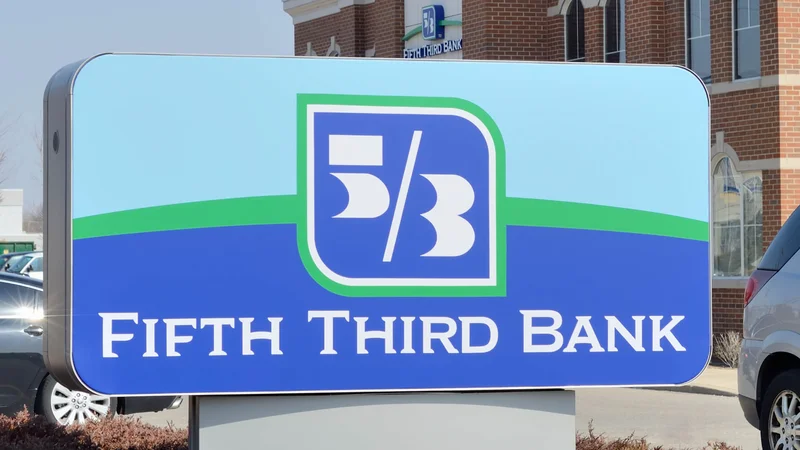So, another legacy brand gets swallowed whole. You can almost set your watch to it. Comerica, a name that's been plastered on buildings in Michigan since before the Civil War, is about to be wiped off the map by some bank from Cincinnati. The price tag? A cool $10.9 billion in stock. Fifth Third Bancorp is buying Comerica for $10.9 billion in tie-up of regional banks.
And the first thing everyone wants to talk about is the name on the baseball stadium.
I get it. It’s the most visible part of the carnage. The big, green letters of Comerica Park are a landmark. But focusing on the stadium is like complaining about the drapes while the whole house is being repossessed. This isn't about a sign on a ballpark; it's about the slow, methodical erasure of what's left of Michigan's corporate identity.
Comerica itself started this process back in 2007 when it packed its bags for Dallas, leaving its home state like a deadbeat dad skipping town. Now, Fifth Third is just finishing the job. And don't let the PR spin fool you. This is a takeover, not a "merger of equals." When one company's shareholders own 73% of the new entity, that ain't a partnership. It's a conquest.
Let's deconstruct the corporate nonsense they fed the investors. Fifth Third's CEO, Tim Spence, called Comerica a "crown jewel." That's a lovely sentiment. But what do you do with a crown jewel when you buy a kingdom? You pry the stones out and melt down the gold to make your own crown bigger.
This deal has nothing to do with strengthening Michigan. This is a strategic play for Texas. Erik Gordon, a professor at U of M who actually knows what he's talking about, laid it out perfectly: "The merger is really about Texas... Texas is a booming market. Michigan is not."
So what is Michigan in this equation? It’s the old, reliable sedan being traded in for parts so the new owner can soup up the flashy convertible he really wanted. Fifth Third gets Comerica’s foothold in Dallas, Houston, and Austin, and Michigan gets… what, exactly? Branch closures and layoffs, gift-wrapped in a press release about "synergies." They call it a "data-driven branch rationalization strategy." I call it firing people to make a spreadsheet look better. They talk about picking the "best" locations where branches overlap, which is just a sanitized way of saying they're gutting redundancies.

This is a bad deal for Michigan. No, 'bad' doesn't cover it—this is a five-alarm dumpster fire for local banking. We're about to lose another major corporate citizen, see dozens of local bank branches shuttered, and watch decisions about our communities get made by executives three states away. What happens when the guy who has to approve a small business loan in Detroit has never even set foot in the city? What happens to the institutional knowledge, the local relationships that guys like David Girodat, the local Fifth Third president, swear they value?
They'll talk about their "Neighborhood Program" and throw $20 million at a Detroit neighborhood to look good, and that's fine. But that’s a rounding error in a $10.9 billion deal. It’s a PR stunt to distract from the fact that the real investment, the real future of this new megabank, is a thousand miles away.
Now, back to the ballpark. The officials are playing it coy. "We'll work with all the partners to say, what's the right name to be on the ballpark," one of them said. Give me a break. We all know what's going to happen. Sometime around 2027, you'll be heading to a Tigers game at "Fifth Third Park." It just sounds wrong, doesn't it?
Imagine the roar of the crowd fading, the crack of the bat echoing, and you look up at the giant scoreboard, not at the familiar green logo, but at some sterile, alien brand that has zero history with the city. Offcourse it's just a name, but it's a symbol. It’s a constant, nagging reminder that you were bought. That your city's icons are just assets to be traded on a balance sheet.
The joint statement from the banks was a masterpiece of corporate doublespeak: "we are committed to thoughtful decisions that reflect our shared values and long-standing community ties." What shared values? One company was founded in Detroit in 1849 and the other is a Cincinnati bank that just wanted a bigger piece of the Sun Belt. Their only shared value is the pursuit of shareholder returns.
And the Ilitch family, owners of the Tigers? Crickets. Not a word. Because they know the score. Their contract has a clause for this, and they'll get paid either way. That’s business. But for the fans, for the city, it’s another little piece of our identity chipped away and sold to the highest bidder. They just slapped new signs on the stadium before the 2025 season, and now they're all destined for a landfill. They expect us to just swallow this, to change our vocabulary and pretend it was always this way, and honestly...
Then again, maybe I'm the crazy one. Maybe in this era of global finance, caring about where your bank is headquartered is like caring about what farm your milk comes from. It's a quaint, outdated notion. But I don't think so. I think it matters. And we're about to find out just how much.
Look, let's not pretend this is some grand tragedy. It's just the way the world works now. A bigger fish eats a slightly smaller fish, and the executives who make the deal get million-dollar bonuses. The rest of us just have to learn the new name on our bank statements and the new sign on the ballpark. This isn't a merger; it's an absorption. And for Michigan, it’s just one more reminder that in the national chess game of corporate finance, we're no longer a king or a queen. We're just a pawn.